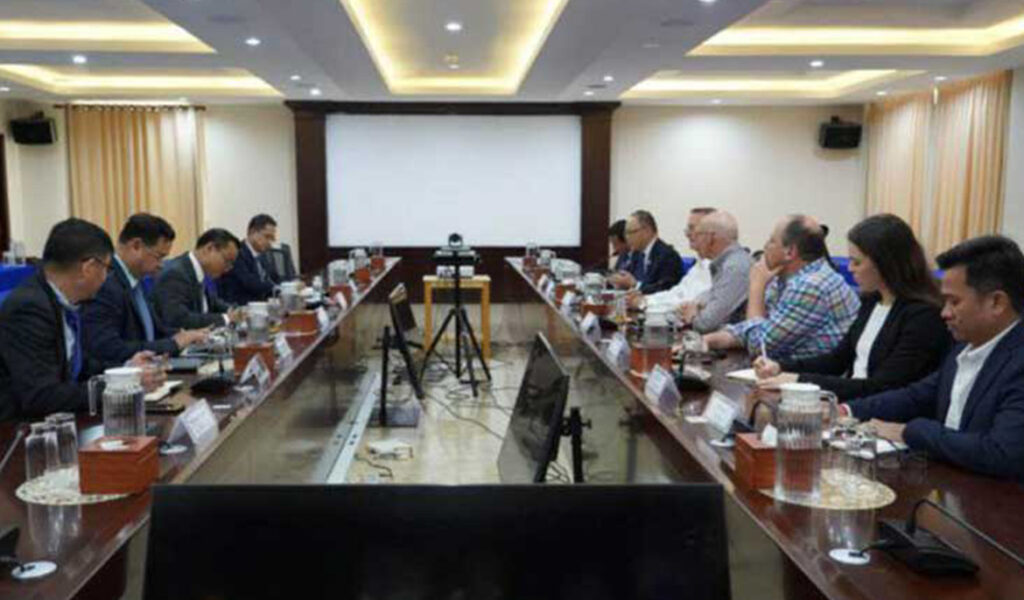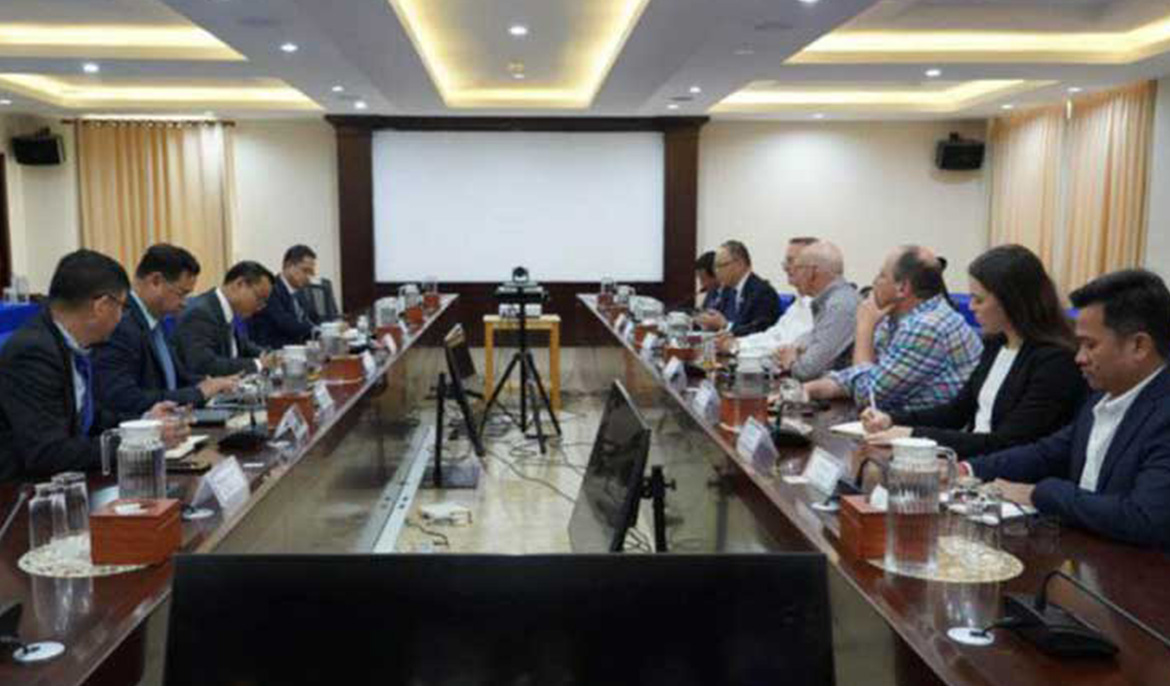Prak David, Secretary of State of the Ministry of Agriculture, Forestry and Fisheries (MAFF), met with an Australian delegation from the Agribusiness Asian Group (AAG) last week to discuss the group’s plans to begin biomass research and production in the Kingdom, in a bid to create more environmental sustainability food production within the agricultural sector.
The meeting between representatives of MAFF and AAG at the ministry’s headquarters in Phnom Penh allowed the Australian delegation to detail their ongoing project in Siem Reap province, and explore how biomass and biogas production, through the use of agricultural waste products as inputs, can support sustainable agriculture development across the broader Cambodian agriculture sector into the future.
The discussions with MAFF followed the March inauguration of AAG’s corn farm in Chea Sman village, Meanchey commune, Prasat Bakong district, Siem Reap province.
The approximately 1000-hectare commercial maize farm was launched to produce high-quality corn for feed millers in the ASEAN region, as part of the Agribusiness Asia Group Co., Ltd., which was established to utilize modern farming technology to improve productivity and profitability in ASEAN-based agriculture ventures.
The farm also integrates state-of-the-art technology such as center pivot irrigation systems, intensive irrigation infrastructure widely used in high-production crop markets such as Australia, New Zealand and the US to ensure ample year-round irrigation and maximum yields.
During the meeting with MAFF, Ian Olifent, Chairman of AAG’s Thailand and Cambodia operations, expressed the group’s intention to research and invest in technology to convert unburned agricultural waste and crop residues, known as biomass, into biogas within the newly inaugurated corn farm in Siem Reap.
The first phase of the project will take five years, he said, and includes growing corn on a mass scale and processing its agricultural waste, including husk and corn stoves, into bio-charcoal able to store carbon for long periods of time.
Olifent explained to the Secretary of State and other representatives from MAFF that biomass is able to be burned at 600 degrees celsius in order to reach high levels of biomass, ultimately becoming biogas.
Once converted to biogas, the waste will now effectively capture and store carbon for up to 1,000 years.
Olifent said that biomass obtained will also be applied to the soil of the Siem Reap farm in order to improve soil conditions, including increasing the soil pH levels, soil environment, nutrient storage capacity and soil microbial activity, all of which supports improved conditions for future agricultural yields, without dependence on chemical fertilizers.
In response, MAFF’s Prak requested that the group also extend their research to include the study of the conversion of agricultural wastes outside of just corn, especially rice husks and straw, along with other commonly found crops residues in Cambodia, that could then be used for such bio-recycling purposes and improve efficiencies of other agricultural products.
Olifent noted that there was potential for extending the initiative to include broader research, and cooperation with MAFF.
He said that the implementation of the 1,000-hectare site in Siem Reap is just the initial phase of the group’s greater plans in the Kingdom; AAG may consider expanding further if there is a clear economic study that proves that corn can provide higher yields in biomass than other crops.
Prak also confirmed to the delegation that the MAFF will consider how it can best support the AAG research moving forward, given the Ministry’s policy of supporting the development of new and innovative business models, modern agriculture technology and sustainability development practices throughout the market.
He noted that there may be economic benefits available to assist in the implementation of the research project, given it can provide broader benefits to the Kingdom’s agricultural sector. (khmertimeskh)



